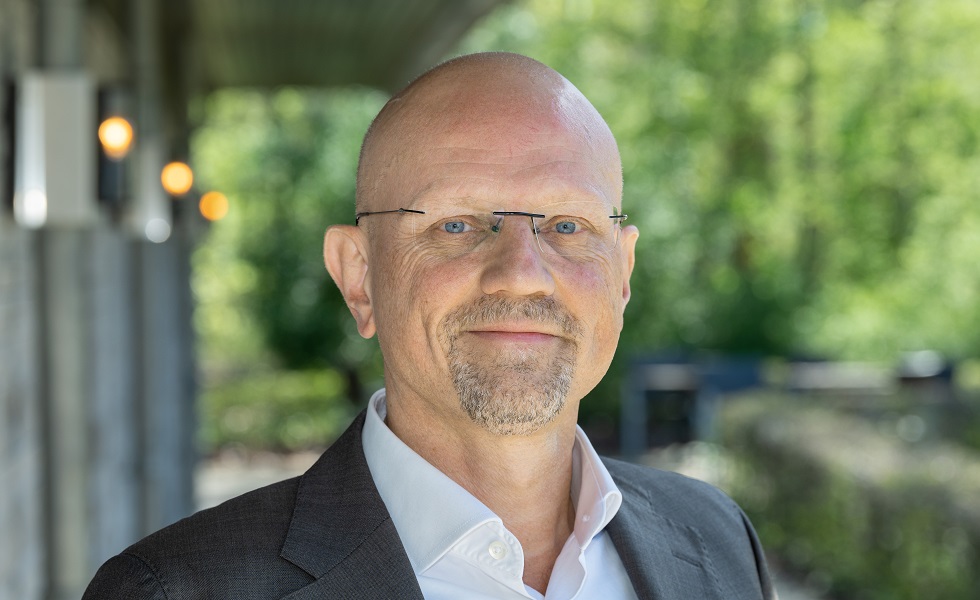Harry Geels: Why New York votes progressively

This column was originally written in Dutch.
By Harry Geels
New York, the beating heart of the financial world, has been a Democratic stronghold for the past hundred years. There seem to be roughly five explanations for this paradox, ranging from psychological motives to strategic elite games.
For a long time, a question, a seemingly paradoxical one, had been running through my mind: ‘How is it possible that New York City (NYC), considered the “toughest” city in the US and the most “capitalist” city in the world, has been voting Democrat for a century? The last time NYC voted Republican was back in 1924. Even during so-called Republican ‘landslides’, such as in the early 1970s (Nixon) and in the 1980s (Reagan), the Democrats always won by a large margin.
When Joe Biden was elected president in 2020, 76.2% voted for the Democrats. Trump received only 22.7% of the votes. He managed to increase that to 30.4% in the last election, still well below half of the votes that Kamala Harris received. In recent years, I have regularly asked analysts and other experts about this apparent paradox. Based on this, I have come up with roughly five hypotheses. But first, the immediate reason for this column.
‘Zuidasboy’
I recently read an interesting essay by Lena Bril about her dating life with a ‘Zuidasboy’. ‘And not just any Zuidasboy. He was at the top of the monkey rock, at the top of the ladder of a prestigious firm, with a hefty salary to boot.’ According to Bril, however, what was remarkable was that he was not interested in comfort, did not see money as a means of impressing others, and was concerned about biodiversity. What's more, he had ‘emotional intelligence in abundance’.
Bril also seemed obsessed with the ‘apparent paradox’. In search of explanations, she came across the Austrian philosopher Isolde Charim, who wrote about voluntary submission to an ideal, so that people get out of bed every day and want to contribute to society. And something about younger generations who can be ‘insecure achievers’ at large corporations and who, with the help of educational programmes, overcome obstacles and continue to develop themselves.
As an aside, it is not just about NYC. Most large Western cities are progressive, although NYC does stand out in terms of contrast.
Apparent paradox
How can NYC be the cradle of the Democrats? Why does the Zuidasboy van Bril have idealistic-progressive ideals? How is it that, especially in recent years, large corporations have embraced progressive programmes such as DEI and sustainability? Why do large banks employ many economists and high-ranking officials who have (socialist or left-liberal) political positions or ambitions?
1) Wealth paves the way for ideals
The first hypothesis comes from psychology, for example from Abraham Maslow's hierarchy of needs. This states that as ‘lower’ needs are fulfilled, such as food, shelter and protection, ‘higher’ needs, such as self-development and meaning for society and the climate, can be fulfilled. A higher salary therefore opens the way to more idealistic satisfaction of needs. People who have to survive are primarily concerned with basic needs.
2) The urban-rural political divide
The second hypothesis touches on an already known phenomenon, namely that cities are more liberal, freer and more progressive than rural areas. According to Robert Putnam, among others, living in densely populated, diverse environments requires a high degree of tolerance, cooperation and dependence on public services (e.g. public transport, sewage systems, safety nets). Rural areas (which tend to be more conservative), on the other hand, are structured around self-reliance.
3) ‘Symbolic capital’
The third hypothesis posits that the world of money is closely linked to other sectors, such as the arts and (academic) education: sectors that have always been important and particularly progressive in large cities. They cannot survive (financially) without each other and they reinforce each other. Consider, for example, how large banks are often ‘adorned’ with art. According to French sociologist Pierre Bourdieu, power is not only maintained with money, but also with underlying structures: ‘symbolic capital’.
4) ‘Corporate socialism’
Then there is one of my pet subjects, corporate socialism, also known as the ‘corporate welfare state’: large companies that are effectively semi-public entities, directly or indirectly supported, for example through lower taxes or ‘too big to fail’ support in major crises. Large corporations, almost always active in large cities, are often pawns in the implementation of (progressive or controlling) government agendas, such as the gatekeeper function of banks or the climate programmes of electricity and energy companies.
5) Elitist-strategic liberalism
Finally, there is support for the idea that wealthy, highly educated elites in large cities often support progressive policies on issues such as race, gender and climate as a way of improving their social legitimacy and image. Conservative David Brooks refers to this as ‘The Sins of the Educated Class’: ‘We preached empathy, but practised meritocracy.’ According to a Harvard study, more than two-thirds of graduates now identify as ‘progressive or very progressive’.
In American politics, the term ‘limousine liberalism’ has been in vogue since the 1970s. One of the first times it was used was by Mario Procaccino, a conservative Democrat who ran against John Lindsay in the 1969 NYC mayoral election. He accused Lindsay, a wealthy Republican who had become a liberal, of being a ‘limousine liberal’ who did not care about the concerns of the working class.
In conclusion
Perhaps democratic NYC or the progressive Zuidasboy are not paradoxes, but the logical consequence of prosperity. After all, it is easier to be idealistic with a well-filled bank account, a view of Central Park and a moral profile on LinkedIn. Who knows, perhaps ‘limousine liberalism’ is not hypocrisy, but simply a further elaboration of what I previously described in a column as ‘woke or conscientious capitalism’.
This article contains the personal opinion of Harry Geels.










